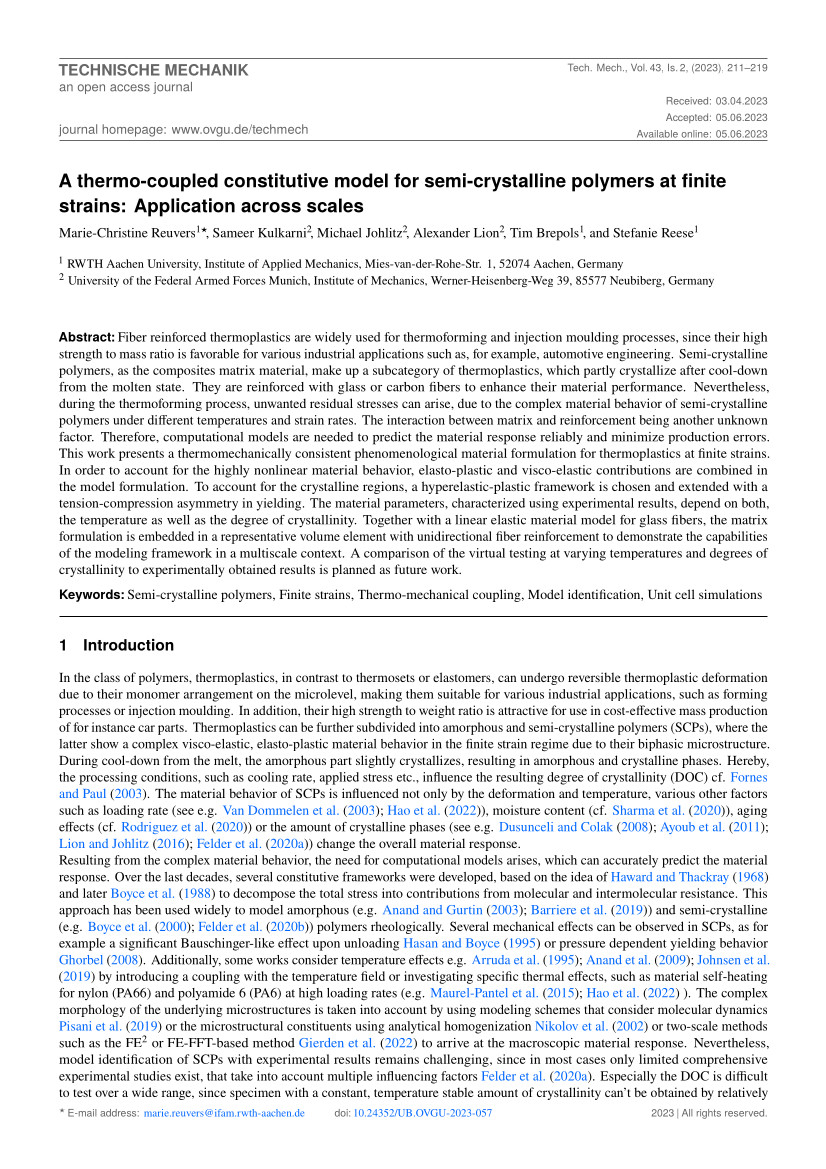A thermo-coupled constitutive model for semi-crystalline polymers at finite strains: Application across scales
DOI:
https://doi.org/10.24352/UB.OVGU-2023-057Keywords:
Semi-crystalline polymers, Finite strains, Thermo-mechanical coupling, Model identification, Unit cell simulationsAbstract
Fiber reinforced thermoplastics are widely used for thermoforming and injection moulding processes, since their high strength to mass ratio is favorable for various industrial applications such as, for example, automotive engineering. Semi-crystalline polymers, as the composites matrix material, make up a subcategory of thermoplastics, which partly crystallize after cool-down from the molten state. They are reinforced with glass or carbon fibers to enhance their material performance. Nevertheless,
during the thermoforming process, unwanted residual stresses can arise, due to the complex material behavior of semi-crystalline polymers under different temperatures and strain rates. The interaction between matrix and reinforcement being another unknown factor. Therefore, computational models are needed to predict the material response reliably and minimize production errors.
This work presents a thermomechanically consistent phenomenological material formulation for thermoplastics at finite strains.
In order to account for the highly nonlinear material behavior, elasto-plastic and visco-elastic contributions are combined in the model formulation. To account for the crystalline regions, a hyperelastic-plastic framework is chosen and extended with a tension-compression asymmetry in yielding. The material parameters, characterized using experimental results, depend on both,
the temperature as well as the degree of crystallinity. Together with a linear elastic material model for glass fibers, the matrix formulation is embedded in a representative volume element with unidirectional fiber reinforcement to demonstrate the capabilities of the modeling framework in a multiscale context. A comparison of the virtual testing at varying temperatures and degrees of
crystallinities to experimentally obtained results is planned as future work.

Downloads
Published
How to Cite
Issue
Section
License
Copyright (c) 2023 Marie Reuvers, Sameer Kulkarni, Michael Johlitz, Alexander Lion, Tim Brepols, Stefanie Reese

This work is licensed under a Creative Commons Attribution-ShareAlike 4.0 International License.




